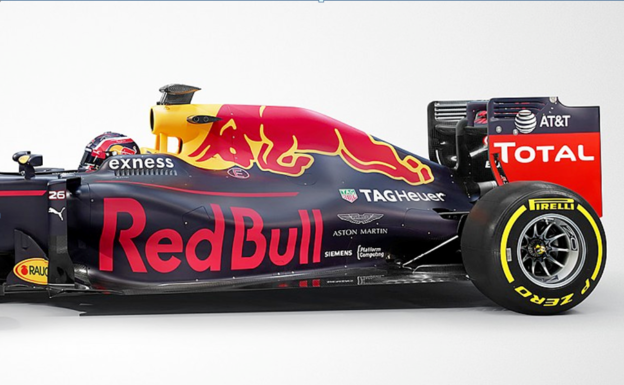Could Betting Companies Sponsor F1?

Formula One is a sport in flux and sponsorship is one of the areas this can be seen most.
The takeover by Liberty is going to lead to a lot of changes in F1 and many people speculate that sponsorship is going to be one of the departments where this happens most obviously.
F1 sponsorship has been on the decline in recent years with the sport's lessened global profile meaning a lot of companies have decided the massive sums involved are no longer worth it.
But with F1 on the rise - helped by a genuine battle for the world championship between modern greats Lewis Hamilton and Sebastian Vettel - new sponsorship opportunities are coming.
The state of play in Formula One sponsorship
According to IEG research, motorsport sponsorship spending will reach $5.75 billion in 2017, which would be a rise of more than three per cent on the previous 12-month period.
However, sponsorship in motorsport is not expected to increase as fast as expected, as IEG had predicted the growth would be around the 4.5 per cent mark instead.
Red Bull is by far the biggest individual sponsor in Formula One at the present time and the beverages giant spends 26.1 times more on the sport than the average of all sponsors.

IEG found that car companies are 4.6 times more likely to sponsor Formula 1 than the average of all categories, although sports apparel firms are not too far behind either.
A recent report found that more than 40 per cent of people have become aware of a brand solely through the sponsorship of Formula One, so it obviously works on the public.
Could betting companies sponsor F1?
Formula One's new owners Liberty have gone on record about the lack of betting companies involved in the sport, so it stands to reason this is an area they will look to exploit.
In contrast to a sport like football, where betting sponsorship is now very common and a lot of Premier League sides have a sportsbook on their shirts, F1 has been slow to embrace betting.
This is a real shame as the sport has a lot of potential in terms of sports betting, as explained in this Gamblingkingz.co.uk betting guide. While there are some in-play markets available, there could be a lot more on offer to engage casual fans.
There does not seem to be a policy issue in the same way that tobacco companies have been banned from sponsoring Formula One - cigarette brands used to adorn virtually every car.
Perhaps the current sponsorships on offer are too expensive, in which case there may need to be a realignment of expectations against reality from the sport itself.
You can learn more about this in this quick beginner's guide at Gamblingkingz.co.uk - but gambling firms will surely come to Formula One sooner rather than later.
Formula One sponsorship on collision course
There is little doubt that Formula One needs to attract some big sponsors - and fast.
While the amount of money being invested into race cars is higher than ever before, teams away from the largest constructors are struggling to avoid making massive losses.
While F1 has traditionally been dominated by the big names like Ferrari, too much of a gap between the best and worst cars in a race is not good news for the sport.
Sponsors want to see exciting races with competitive drivers throughout the field who can rely on their cars to give them a chance to upset the odds against those at the top of the standings.
But all too often that is not the case, with the most expensive cars proving to be by far the fastest and little in the way of real racing on show on Grand Prix day itself.
So what needs to change? According to Volkswagen Group director Bernhard Gobmeier, Formula 1 is on a "dangerous path" because of the huge amounts spent on building cars.
"It is expensive. Most of the teams, apart from the big four, have financial problems," he told Autosport recently. "The number of sponsors is going down. And so is the spectators' number.
"The big sponsors, like the cigarette companies, are not there. The small sponsors are also reducing. At the same time, the cost of race cars is increasing. Something is not fitting there."
F1 sponsorship in 2017

The expected deluge of new sponsors into Formula One following the Liberty takeover of the sport has thus far failed to materialise.
But there have been some positive signs, with Petronas extending their partnership with Mercedes to the end of the 2018 season, ending speculation the team could quit F1.
Valtteri Bottas also secured a seat driving for Mercedes in 2017 partly as a result of a sponsorship change, with Antti Aarnio-Wihuri switching from Williams to back the Finn.
Among the new sponsorship deals announced for the 2017 season was a deal between vitamin and supplement company Swisse and Ferrari, which was confirmed in February.
Red Bull also picked up a new official fuel, lubricant and motor oil partner with ExxonMobil, whose Mobil 1 and Esso brands are promoted on the team's cars, driver overalls and helmets.
"Mobil 1 has been an iconic brand in Formula 1 for more than 30 years and our new partnership provides us with a unique opportunity to tap into ExxonMobil's world class expertise," said Christian Horner, team principal of Red Bull Racing, when the deal was announced.
Big title sponsor on the way for McLaren?
The demise of the McLaren team is one of the saddest stories in Formula One right now.
Previously perennial contenders, the team is currently a shadow of its former self and has not even had a title sponsor since their deal with Vodafone ran out in 2013.
But McLaren is currently seeking to secure a new title sponsor for 2018 and beyond and whether the team is successful will offer a strong hint about the strength of F1 sponsorship.
Executive director Zak Brown is the man charged with delivering a title sponsor for McLaren, with the search intensifying as the end of the current season nears.
"Usually, big deals of this nature are confirmed "by October, November, December at the latest" according to Brown, so he has a lot of work still to do.
If a big Formula One name such as McLaren cannot land a title sponsor that can invest enough to push the team back towards the top of the sport, it does not bode well for the future of Formula One despite the positive changes that have been made by new owners Liberty.
Felio Siby shows a way forward
With Formula One evidently at somewhat of a crossroads in terms of sponsorship, one company could be showing a potential way forward for the sport.
Felio Siby is one of the main sponsors at Sahara Force India but the firm is one of hardly any high-quality lifestyle brands that have lent their name to the sport.
Red Bull has shown how a company can enjoy a massive boost to its public profile as a result of Formula One sponsorship and Felio Siby is aiming to tread the same path to success.
The firm, which produces high-end watches and clothing, is the brainchild of founder Dominique Siby, who is a lifelong F1 fan and first got involved with the sport in 2016.
After a meeting with Felipe Nasr at the 2015 Singapore Grand Prix, Siby then got together with Force India chief operations officer Otmar Szafnauer and agreed to sponsor the team. Their partnership has been going from strength to strength ever since.
With an annual television audience of 390 million viewers, Formula One has a massive global reach and companies like Felio Siby are seeing the advantages of getting involved.
"My own individual involvement and company's brand positioning in the Formula One business is an excellent strategy for positioning the Felio Siby label outside the fashion arena," Siby said to Forbes as he explained the nature of the deal.
What is next for Formula One sponsorship?
Digital is an area where Liberty can make large strides forward in F1 sponsorship. In fact, when the company completed their takeover, F1 itself only had five major sponsors.
There is therefore plenty of room to grow ahead of the 2018 season and the type of deals done will be an indication of where Liberty sees F1 going in the coming years.
Liberty evidently wants to bring Formula One to the attention of a younger target market, moving away from the older, rich crowd that has often defined the sport.
While this may seem like a risk, it makes sense as a long-term strategy, with Liberty needing to take action to ensure the future of the sport is secured by developing a solid fanbase.
Betting is one area Liberty has signalled its desire to make progress and steps should be taken in the coming months to put things in place for the 2018 season.
What is for sure is that there are a lot of changes being made in the sport of Formula One and it is going to be an exciting time for everyone involved.
Whether sponsors decide it is in their interest to join forces with Liberty for the good of the sport, however, certainly remains to be seen.
✅ Check out more posts with related topics:













LAST 3 F1 Fan COMMENTS